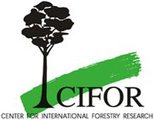The July edition of the Center for International Forestry Research (CIFOR) Newsletter includes information on recent REDD+ research; evaluations of payment for environmental services; lessons from forest certification processes; and the role of Chinese investment in the Democratic Republic of the Congo.
 July 2012: The July edition of the Center for International Forestry Research (CIFOR) Newsletter underscores that, despite initial assumptions that REDD+ (reducing emissions from deforestation and forest degradation in developing countries, and the role of conservation, sustainable use of forests and enhancement of carbon stock) would be “big, quick and cheap,” it has instead consisted of many small efforts designed and implemented by many different donors and agencies, is slow to design and implement, and is likely to be more expensive than expected.
July 2012: The July edition of the Center for International Forestry Research (CIFOR) Newsletter underscores that, despite initial assumptions that REDD+ (reducing emissions from deforestation and forest degradation in developing countries, and the role of conservation, sustainable use of forests and enhancement of carbon stock) would be “big, quick and cheap,” it has instead consisted of many small efforts designed and implemented by many different donors and agencies, is slow to design and implement, and is likely to be more expensive than expected.
The newsletter highlights the recent CIFOR collection of studies on “Analysing REDD+: Challenges and Choices,” which notes that while REDD+ has not yet resulted in transformational change in the forestry sector, there is reason to be optimistic on the role of REDD+ at identifying and addressing challenging issues. The newsletter also includes an interview with CIFOR Director General Frances Seymour, on analyzing REDD+.
On payments for environmental services (PES), the newsletter describes a recent CIFOR study that analyzes whether payments supply environmental services in developing countries. It concludes that due to a lack of proper monitoring, the impacts of PES on environment and socioeconomic systems are not understood. An additional blog entry describes the role of forests in influencing precipitation, underscoring that large areas of forests are needed to impact rainfall.
On forest certification, CIFOR contributors note the alliance between NGOs and timber companies on ensuring legal chain of custody, and the important role of forest certification systems in providing oversight and accountability. The Newsletter also describes the role of Chinese investment in mining in the Democratic Republic of the Congo, and impacts on forests. It also includes a call to organizations outside of the Collaborative Partnership of Forests (CPF) to participate in, and host Discussion Forums at, Forest Day 6, scheduled to take place on the sidelines of the 18th session of the Conference of the Parties (COP 18) to the UNFCCC in Doha, Qatar, on 2 December 2012. CIFOR is a member of the Consultative Group for International Agricultural Research (CGIAR). [CIFOR Newsletter, July 2012] [Publication: Analysing REDD+: Challenges and Choices]